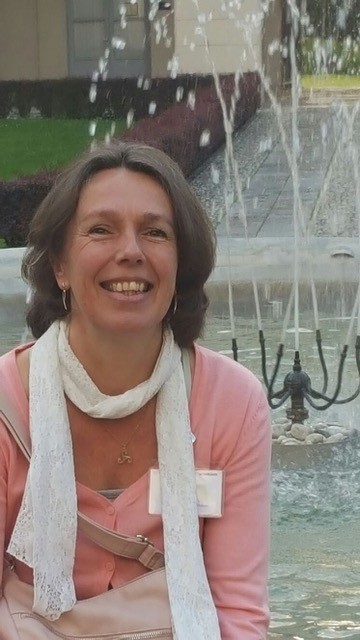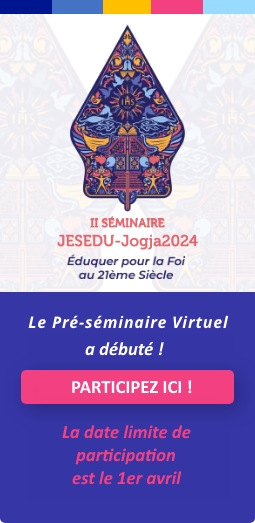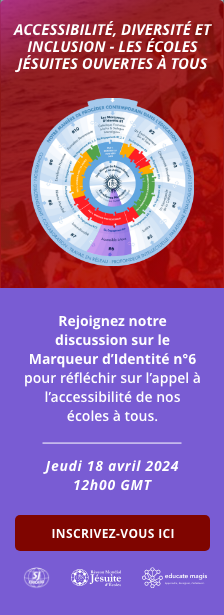
I think the work JECSE does is really important, especially in today’s context of secularization, economisation and polarization. Our world – and Europe, with it’s complicated history, in particular – needs reconciliation, compassion and hope. The many young people in our schools, following the example of Jesus, can help to make it so, with our dedicated support.
During the many JECSE meetings I attended over the years what strikes me time and time again as the most essential challenge is how, in this ever more secularized Europe, to develop interiority.
Developing interiority, learning to be in silence and to reflect on your life path, is – as I strongly believe – an invitation to a deeper spirituality: a way that helps to discover and learn to trust the ‘inner teacher’ and the God of love Jesus revealed to mankind.
Many young people are not familiar with the stories of Jesus anymore, but they do hunger for spirituality. Ignatian pedagogy offers us a beautiful and strong approach to accompany their growth as a full human beings, to help them discover and appreciate who they are, to be grateful for their talents and to learn to contribute to the world around them. Ignatian spirituality can help them to understand the teachings of Jesus anew, and – in an open dialogue with other spiritualities – help them to trace the wisdom on all kind of human life themes.
For a growing number of the young people of today finding new ways to live together in peaceful human communities and to live in harmony with the environment seem to be the new spiritual paths. Developing human excellence next to academic excellence, and thus creating compassionate school communities, is a meaningful existential example; and an essential counterweight to a world driven by economic values, individual interests and competition only.
Likewise, what strikes me over and over again is the importance of JECSE as a platform for sharing, not just as a means to an end but as an end in itself. The essential priority of reconciliation starts, I feel, with recognizing in your fellow human beings the same longing and sorrow, hope and fear, you can find within yourself, in spite of the differences; and to learn to look at the human quest through the eyes of a loving God. Sharing in depth is a way of practising this attitude, and I’ve often witnessed during all kinds of international JECSE meetings the spontaneous creation of this wonderful, healing atmosphere, even though we face very different contexts in our different countries, cultures and schools.
In this respect I appreciated very much the notion in Father General Arturo Sosa’s address to the worldwide education delegates in Rio last October, on universalization: deep intercultural exchange as a means to create the conditions to fully experience humanity, contributing to the humanization of individuals, cultures and peoples. I feel our worldwide network for Jesuit education has a huge potential to contribute to this very important worldwide process, as does Educate Magis, offering so many beautiful possibilities for sharing and Exchange!
Se connecter ou Adhérer
pour créer et afficher des commentaires

